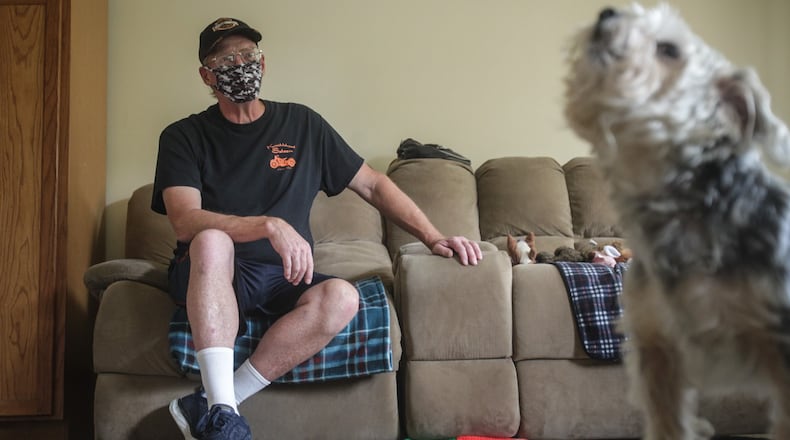The study also found hunger can lead to other problems. Researchers and advocates said Thursday that not having enough to eat can lead to physical and mental health conditions and increase a veteran’s risk of suicide.
Rand researchers found 7.5% of America’s roughly 18 million veterans — nearly 1.4 million — don’t have enough food, but less than 5% are enrolled in the federal government’s Supplemental Nutrition Assistance Program, or SNAP, according to the report titled “Reducing Policy Barriers to SNAP Participation by Food-Insecure Veterans.”
To close the gap, researchers recommended finding ways to better screen veterans about their access to food and conduct more research to determine what might be stopping them from enrolling, such as a stigma from accepting help, awareness of the program, or policies that count veteran disability benefits as income. The report did not examine why veterans aren’t enrolled in more government programs. It only focused on the demographics of veterans who use SNAP, formerly known as food stamps.
“When we speak about food and food-insecure households, this refers to having difficulty at some point in time during the year providing enough food for all household members because of a lack of resources,” Tamara Dubowitz, a senior policy researcher at Rand, said Thursday during an online presentation on the study.
The gap between those in need and those enrolled in SNAP was widest among veterans who are older than 70 and those out of work because of a disability. Roughly 70% of food-insecure veterans older than 70 were not enrolled in SNAP, compared to 60% of nonveterans of the same age and disposition. Among food-insecure disabled veterans, 55% were not enrolled, compared with about 45% percent of nonveterans. Further research on why veterans aren’t enrolling is needed, Dubowitz said.
Reducing food insecurity in veterans could lead to improvements in their physical and mental health and reduce the risk of suicide, according to the report. Veterans are already 57% more likely to die by suicide than nonveterans, according to the Centers for Disease Control and Prevention.
Josh Protas, vice president of public policy for MAZON, a Jewish organization dedicated to fighting hunger, said food security could be one more way to approach suicide prevention.
“The veteran suicide crisis is real and a lot more attention needs to be paid to that. With food insecurity contributing, there’s much more we could do. Even more worrisome, there’s a 900% increase of predicted probability of suicidal ideation for veterans with both food insecurity and mental health disorders,” he said.
The Department of Veterans Affairs routinely screens veterans during primary care visits to determine their ability to buy enough food. However, veterans who don’t qualify for or use VA health care wouldn’t be included in these screenings.
Last year, the White House launched a national strategy on hunger, nutrition and health, which called on the VA to review its food-assistance programs and screenings, Megan Bowman, coordinator for the Veterans Health Administration’s Food Security Program Office, said Thursday.
“We anticipate expansion of existing [Veterans Health Administration] programs and services such as produce prescription programs, healthy [cooking] class classes and food hubs,” she said.
VA disability payments are considered income when enrolling in SNAP, Dubowitz said. While this study did find veterans receiving disability checks are less likely to be enrolled in SNAP, researchers need more information to know whether those payments are making veterans ineligible even when they still have challenges buying enough food.
A similar problem has been identified among active-duty military members who don’t have enough food. Rand found in a previous report that 15% of service members don’t have enough food and their housing allowances increase their incomes making them ineligible for government assistance.
Protas said he’s been trying for more than a decade to get Congress to pass a law to change that. He said he worries that rallying enough votes to do the same for veteran benefits would be just as challenging.
“You would think that this is an easy bipartisan thing to accomplish,” Protas said. “Unfortunately, too many feel that food security is not a priority in this country and that it shouldn’t be for the federal government. That includes for military families and for veterans.”
(c) 2023 the Stars and Stripes. Visit the Stars and Stripes at www.stripes.com
About the Author
